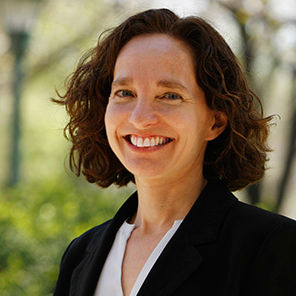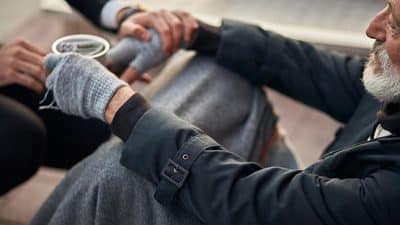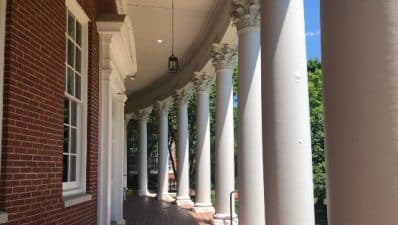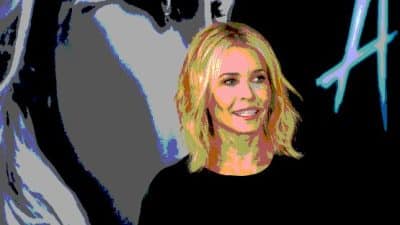
She began her new role as the school’s 12th dean last week.
“UVA Law is a joyous place and a humane place, and I think we model that beautifully already, but I’m excited to model that as the dean,” Goluboff said. While acknowledging the responsibility she undertakes, she said, “I look forward to enjoying it and to making sure that everyone here not only excels but thrives.”
Goluboff, who joined the faculty in 2002, comes to her post with a pedigree that few can match: She earned an undergraduate degree from Harvard University, a J.D. from Yale Law School and a Ph.D. in history from Princeton University. She clerked for Judge Guido Calabresi of the U.S. Court of Appeals for the Second Circuit and for U.S. Supreme Court Justice Stephen G. Breyer (both of whom sing her praises; see sidebar). She has written two books recognized as significant contributions to civil rights and legal history, “The Lost Promise of Civil Rights” (2007), which received the Order of the Coif award for best book in the legal field as well as the James Willard Hurst Prize, and “Vagrant Nation,” published this year. Her other honors include UVA’s prestigious All-University Teaching Award, aGuggenheim Fellowship, a Fulbright Scholarship and a fellowship from the American Council for Learned Societies.
She also crisscrossed the South for the “Let’s Go” travel books as an undergraduate, making her perhaps the most knowledgeable law school dean about where to get the best barbecue and fried catfish below the Mason-Dixon Line on a $40-a-day budget.
The youngest child of a clinical psychologist and an advertising creative director, Goluboff grew up in New York, a third-generation Brooklynite who also spent several years on Long Island.
She grew interested in civil rights history and law, inspired by legal heroes such as Clarence Darrow and Thurgood Marshall, and by the racial tension she saw growing up in New York. For her undergraduate thesis, she spent a semester living on Johns Island in South Carolina, collecting oral histories and volunteering with a community-based organization.
“Studying the southern civil rights movement exposed me to the power of lawyers as well as the power of grassroots organizations,” she said. “Law isn’t something out there that exists in the world in a vacuum outside of human control. The law is what people make it.”
Human enterprise is an idea she has continually come back to in her scholarship — not only lawyers shaping law, but everyday people shaping law, an undergirding theme in her two books.
As she graduated from college, she realized she didn’t want to choose between studying history and law, so she chose both, pursuing both a J.D. and a Ph.D. In law school, she realized she could make a difference as a legal academic.
“It became clear that as a law professor, I could be a scholar with a real impact on the world, both because I am teaching lawyers and shaping their views of the world, and also because I can sign amicus briefs, write op-eds, and generally become involved in current legal issues,” she said.










